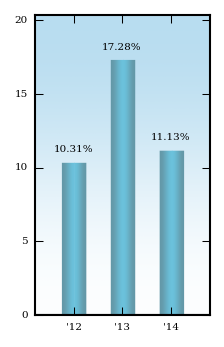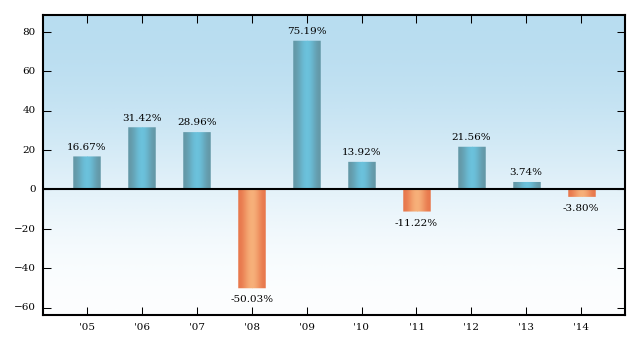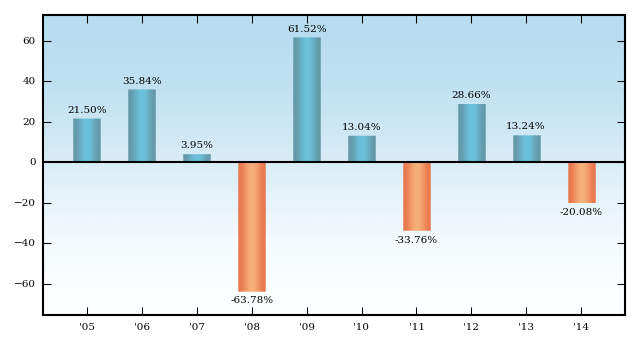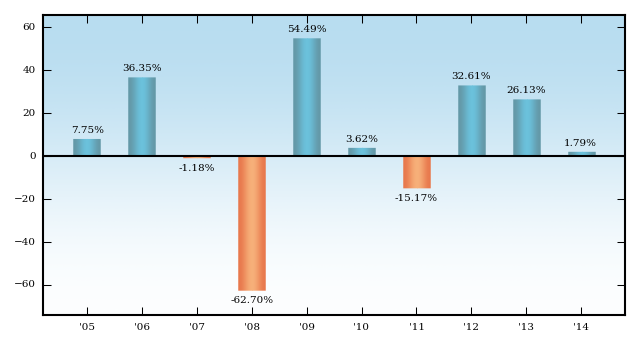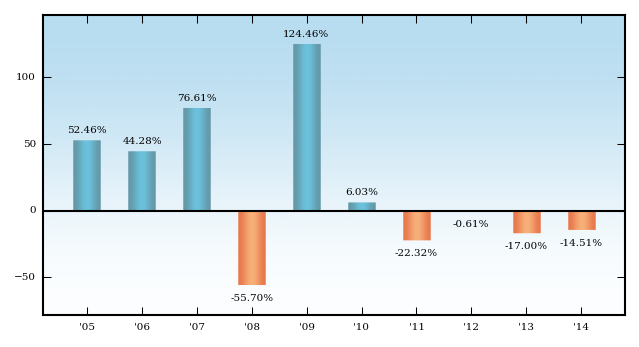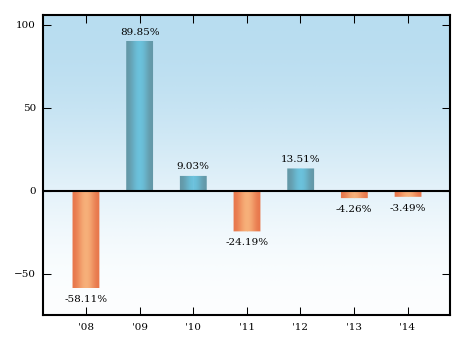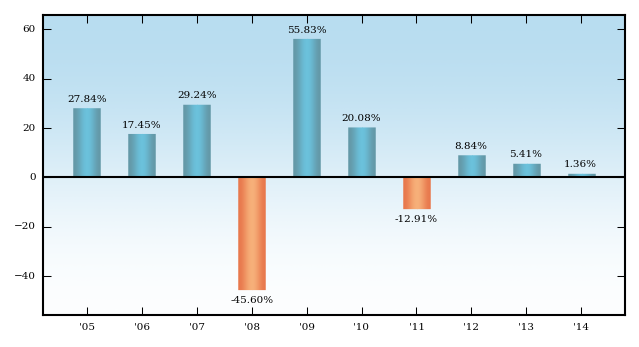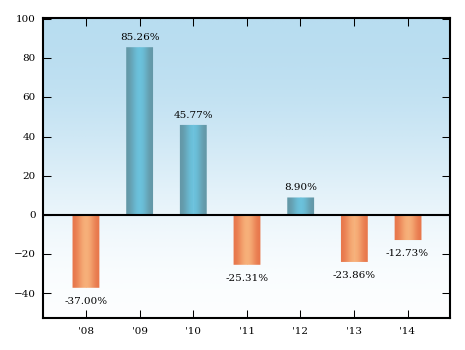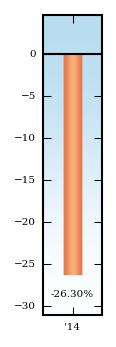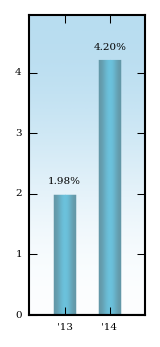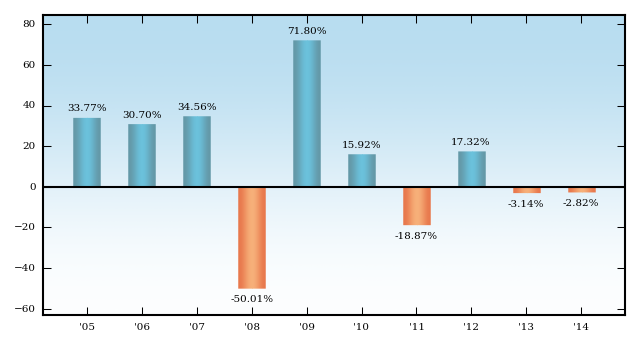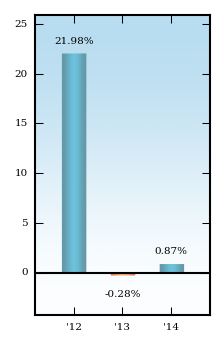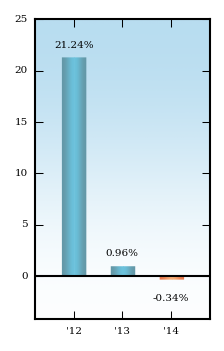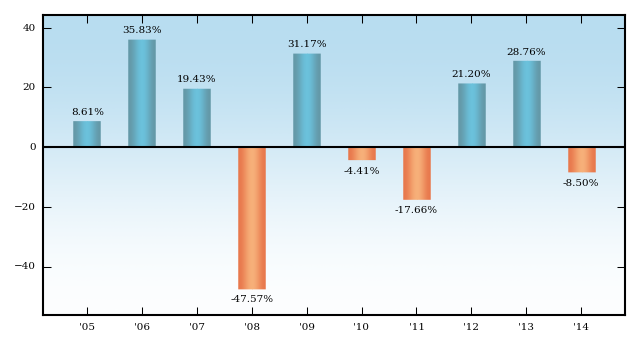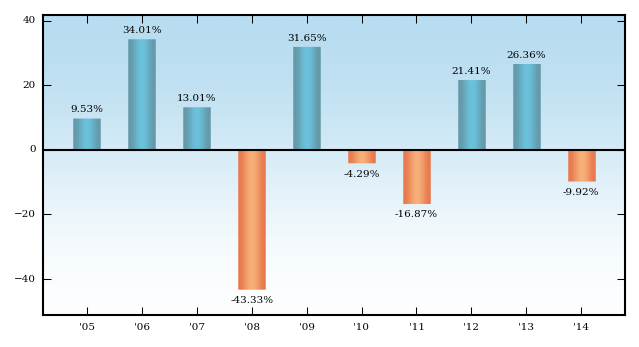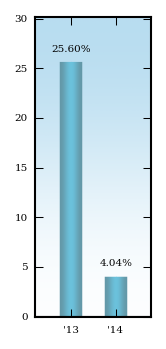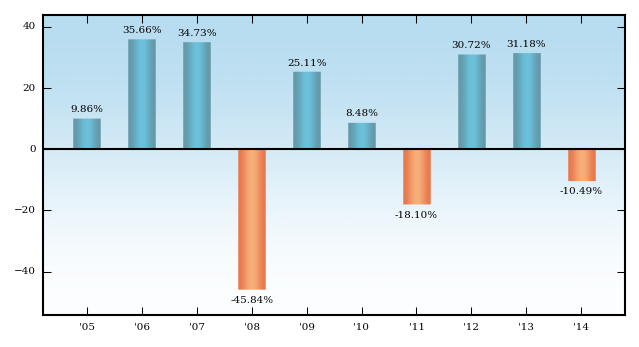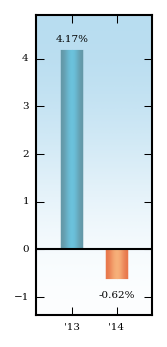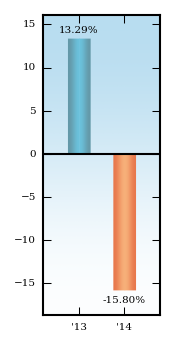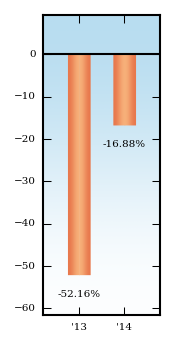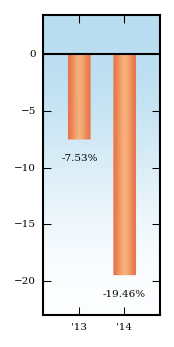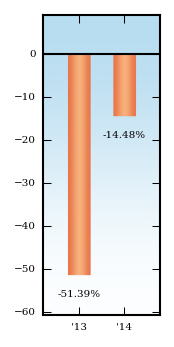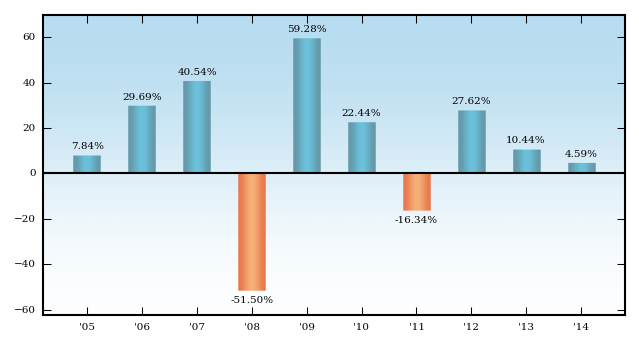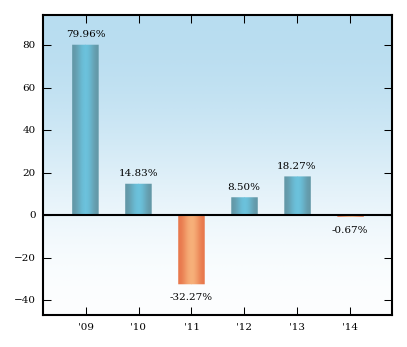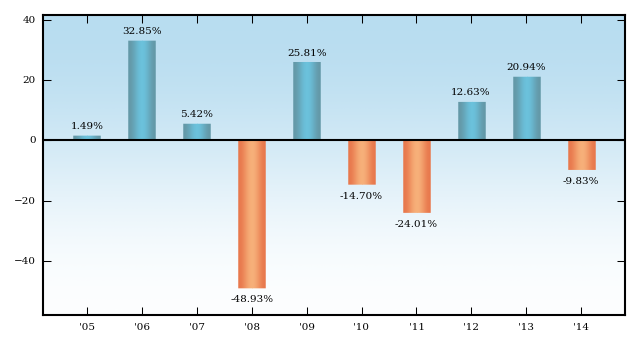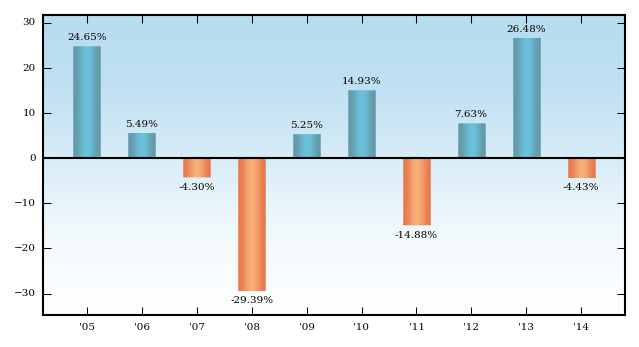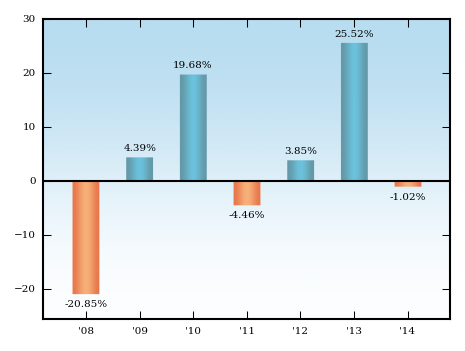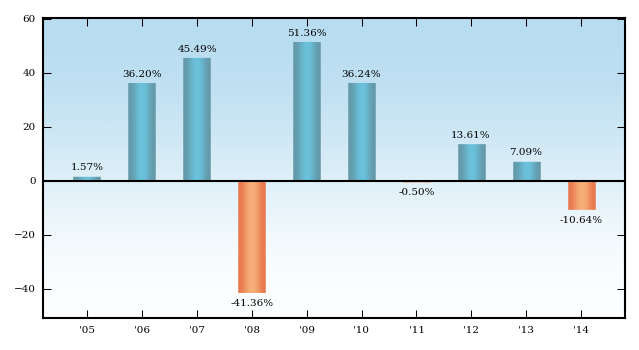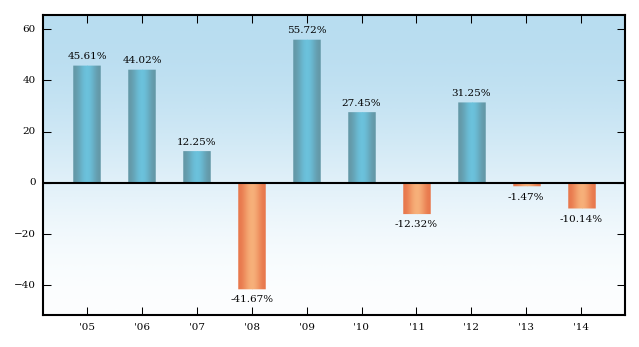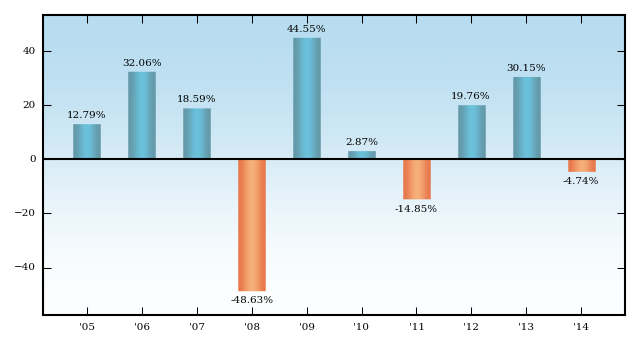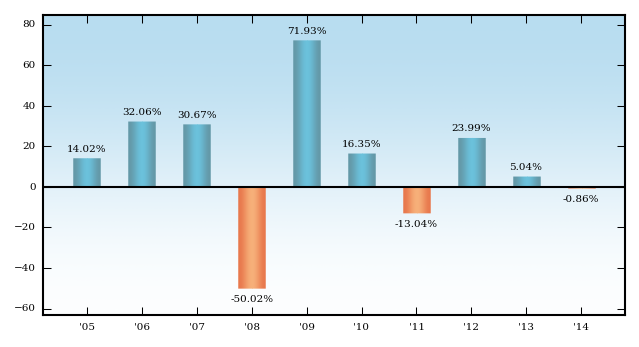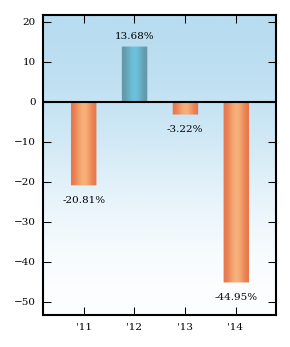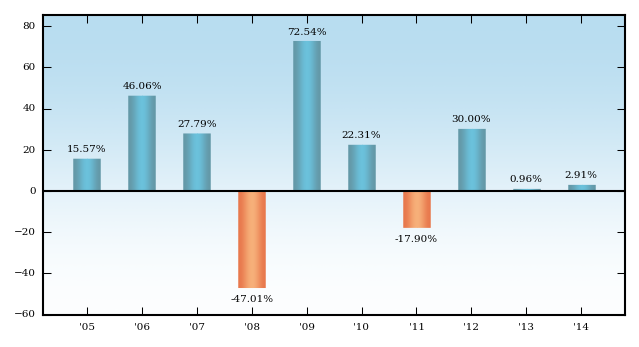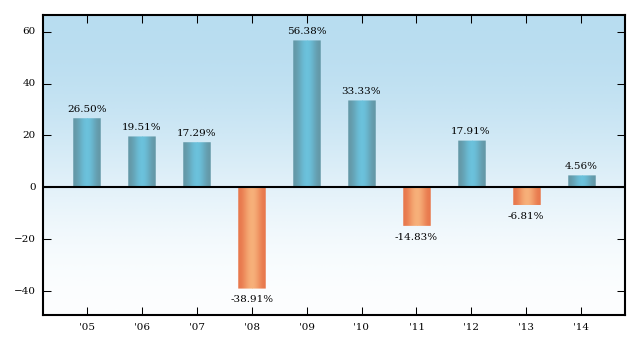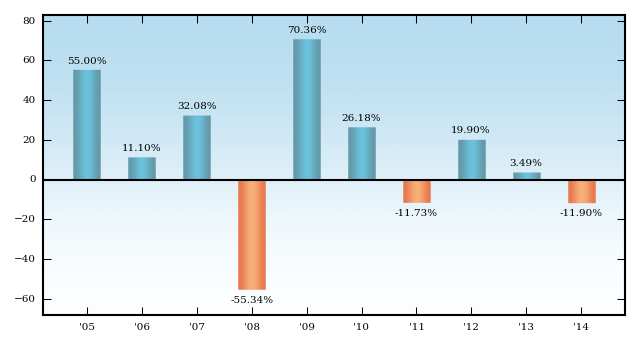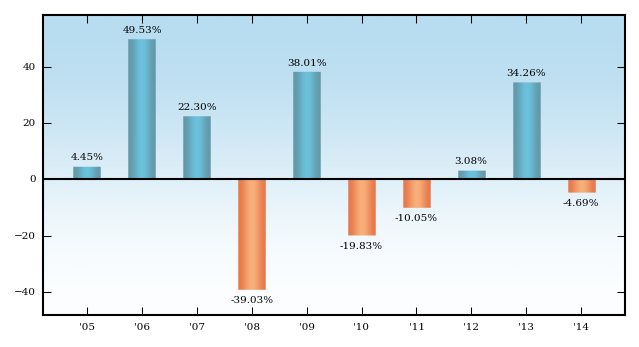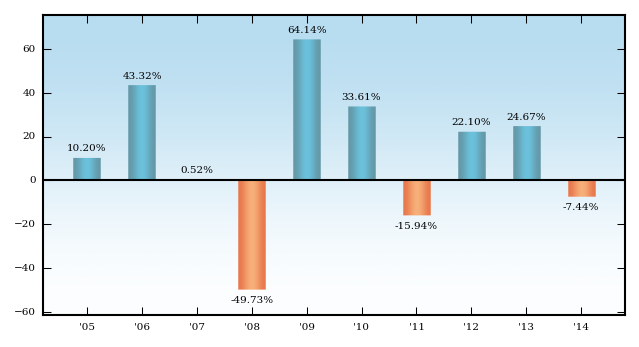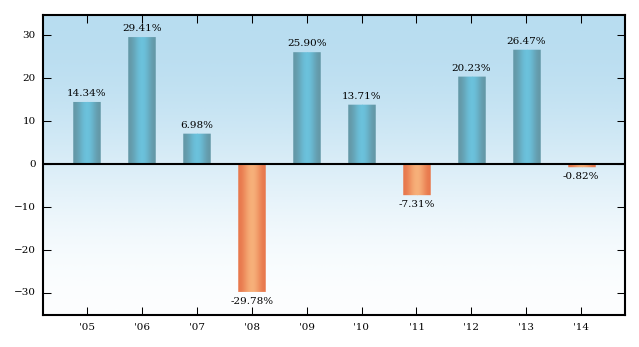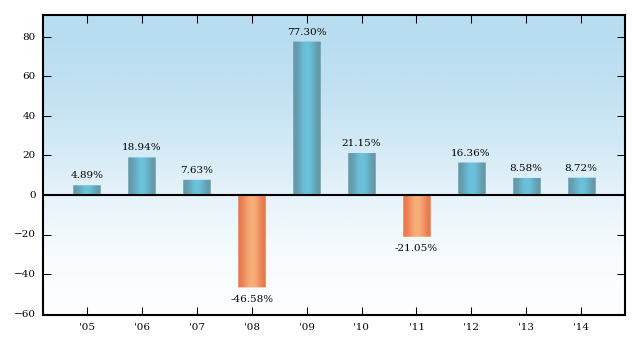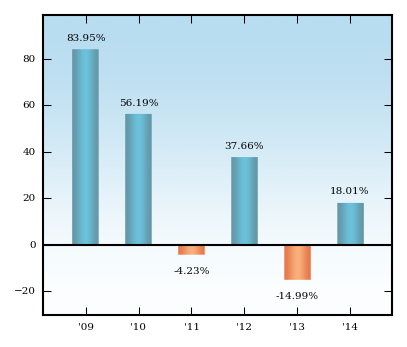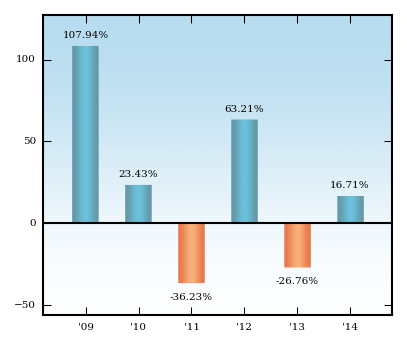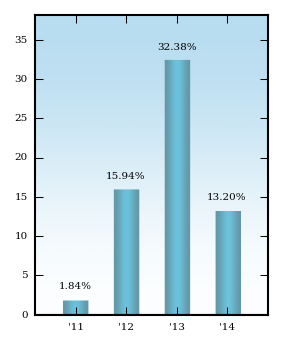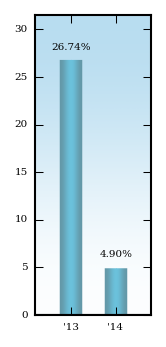| iShares Core MSCI Emerging Markets ETF | |||||||||||||||||||||||||||
| iSHARES® CORE MSCI EMERGING MARKETS ETF Ticker: IEMG Stock Exchange: NYSE Arca | |||||||||||||||||||||||||||
| Investment Objective | |||||||||||||||||||||||||||
| The iShares Core MSCI Emerging Markets ETF (the “Fund”) seeks to track the investment results of an index composed of large-, mid- and small-capitalization emerging market equities. | |||||||||||||||||||||||||||
| Fees and Expenses | |||||||||||||||||||||||||||
| The following table describes the fees and expenses that you will incur if you own shares of the Fund. The investment advisory agreement between iShares, Inc. (the “Company”) and BlackRock Fund Advisors (“BFA”) (formerly, Barclays Global Fund Advisors (“BGFA”)) (the “Investment Advisory Agreement”) provides that BFA will pay all operating expenses of the Fund, except interest expenses, taxes, brokerage expenses, future distribution fees or expenses, and extraordinary expenses. The Fund may also pay “Acquired Fund Fees and Expenses.” Acquired Fund Fees and Expenses reflect the Fund's pro rata share of the fees and expenses incurred by investing in other investment companies. The impact of Acquired Fund Fees and Expenses is included in the total returns of the Fund. Acquired Fund Fees and Expenses are not used to calculate the Fund's net asset value per share (“NAV”) and are not included in the calculation of the ratio of expenses to average net assets shown in the Financial Highlights section of the Fund's prospectus (the “Prospectus”). You may also incur usual and customary brokerage commissions and other charges when buying or selling shares of the Fund, which are not reflected in the Example that follows: | |||||||||||||||||||||||||||
| Annual Fund Operating Expenses (ongoing expenses that you pay each year as a percentage of the value of your investments) | |||||||||||||||||||||||||||
| |||||||||||||||||||||||||||
| Example. | |||||||||||||||||||||||||||
| This Example is intended to help you compare the cost of owning shares of the Fund with the cost of investing in other funds. The Example assumes that you invest $10,000 in the Fund for the time periods indicated and then sell all of your shares at the end of those periods. The Example also assumes that your investment has a 5% return each year and that the Fund’s operating expenses remain the same. Although your actual costs may be higher or lower, based on these assumptions, your costs would be: | |||||||||||||||||||||||||||
| |||||||||||||||||||||||||||
| Portfolio Turnover. | |||||||||||||||||||||||||||
| The Fund may pay transaction costs, such as commissions, when it buys and sells securities (or “turns over” its portfolio). A higher portfolio turnover rate may indicate higher transaction costs and may result in higher taxes when Fund shares are held in a taxable account. These costs, which are not reflected in Annual Fund Operating Expenses or in the Example, affect the Fund's performance. During the most recent fiscal year, the Fund's portfolio turnover rate was 7% of the average value of its portfolio. | |||||||||||||||||||||||||||
| Principal Investment Strategies | |||||||||||||||||||||||||||
| The Fund seeks to track the investment results of the MSCI Emerging Markets Investable Market Index (IMI) (the “Underlying Index”), which is designed to measure large-, mid- and small-cap equity market performance in the global emerging markets. As of June 30, 2015, the Underlying Index consisted of the following 23 emerging market countries: Brazil, Chile, China, Colombia, the Czech Republic, Egypt, Greece, Hungary, India, Indonesia, Malaysia, Mexico, Peru, the Philippines, Poland, Qatar, Russia, South Africa, South Korea, Taiwan, Thailand, Turkey and the United Arab Emirates. As of June 30, 2015, the Underlying Index was comprised of 2,724 constituents. Components of the Underlying Index primarily include consumer discretionary, financials and information technology companies. The components of the Underlying Index, and the degree to which these components represent certain industries, are likely to change over time. BFA uses a “passive” or indexing approach to try to achieve the Fund’s investment objective. Unlike many investment companies, the Fund does not try to “beat” the index it tracks and does not seek temporary defensive positions when markets decline or appear overvalued. Indexing may eliminate the chance that the Fund will substantially outperform the Underlying Index but also may reduce some of the risks of active management, such as poor security selection. Indexing seeks to achieve lower costs and better after-tax performance by keeping portfolio turnover low in comparison to actively managed investment companies. BFA uses a representative sampling indexing strategy to manage the Fund. “Representative sampling” is an indexing strategy that involves investing in a representative sample of securities that collectively has an investment profile similar to that of the Underlying Index. The securities selected are expected to have, in the aggregate, investment characteristics (based on factors such as market capitalization and industry weightings), fundamental characteristics (such as return variability and yield) and liquidity measures similar to those of the Underlying Index. The Fund may or may not hold all of the securities in the Underlying Index. The Fund generally will invest at least 90% of its assets in the component securities of the Underlying Index and in investments that have economic characteristics that are substantially identical to the component securities of the Underlying Index (i.e., depositary receipts representing securities of the Underlying Index) and may invest up to 10% of its assets in certain futures, options and swap contracts, cash and cash equivalents, including shares of money market funds advised by BFA or its affiliates, as well as in securities not included in the Underlying Index, but which BFA believes will help the Fund track the Underlying Index. The Fund invests all of its assets that are invested in India through a wholly owned subsidiary located in the Republic of Mauritius (the “Subsidiary”). BFA serves as investment adviser to both the Fund and the Subsidiary. Unless otherwise indicated, the term “Fund,” as used in this Prospectus, means the Fund and/or the Subsidiary, as applicable. The Fund seeks to track the investment results of the Underlying Index before the fees and expenses of the Fund. The Fund may lend securities representing up to one-third of the value of the Fund's total assets (including the value of any collateral received). The Underlying Index is calculated by MSCI Inc. (the “Index Provider” or “MSCI”), which is independent of the Fund and BFA. The Index Provider determines the composition and relative weightings of the securities in the Underlying Index and publishes information regarding the market value of the Underlying Index. Industry Concentration Policy. The Fund will concentrate its investments (i.e., hold 25% or more of its total assets) in a particular industry or group of industries to approximately the same extent that the Underlying Index is concentrated. For purposes of this limitation, securities of the U.S. government (including its agencies and instrumentalities) and repurchase agreements collateralized by U.S. government securities are not considered to be issued by members of any industry. | |||||||||||||||||||||||||||
| Summary of Principal Risks | |||||||||||||||||||||||||||
| As with any investment, you could lose all or part of your investment in the Fund, and the Fund's performance could trail that of other investments. The Fund is subject to the principal risks noted below, any of which may adversely affect the Fund's NAV, trading price, yield, total return and ability to meet its investment objective. Asset Class Risk. Securities and other assets in the Underlying Index or in the Fund's portfolio may underperform in comparison to the general financial markets, a particular financial market or other asset classes. Authorized Participant Concentration Risk. Only an Authorized Participant (as defined in the Creations and Redemptions section of the Prospectus) may engage in creation or redemption transactions directly with the Fund. The Fund has a limited number of institutions that act as Authorized Participants. To the extent that these institutions exit the business or are unable to proceed with creation and/or redemption orders with respect to the Fund and no other Authorized Participant is able to step forward to create or redeem Creation Units (as defined below), Fund shares may trade at a discount to NAV and possibly face trading halts and/or delisting. Commodity Risk. The Fund invests in economies that are susceptible to fluctuations in certain commodity markets. Any negative changes in commodity markets could have an adverse impact on those economies. Concentration Risk. The Fund may be susceptible to an increased risk of loss, including losses due to adverse events that affect the Fund’s investments more than the market as a whole, to the extent that the Fund's investments are concentrated in the securities of a particular issuer or issuers, country, group of countries, region, market, industry, group of industries, sector or asset class. Consumer Discretionary Sector Risk. The consumer discretionary sector may be affected by changes in domestic and international economies, exchange and interest rates, competition, consumers' disposable income, consumer preferences, social trends and marketing campaigns. Currency Risk. Because the Fund's NAV is determined in U.S. dollars, the Fund's NAV could decline if the currency of a non-U.S. market in which the Fund invests depreciates against the U.S. dollar or if there are delays or limits on repatriation of such currency. Currency exchange rates can be very volatile and can change quickly and unpredictably. As a result, the value of an investment in the Fund may change quickly and without warning, which could have a significant negative impact on the Fund. Custody Risk. Less developed markets are more likely to experience problems with the clearing and settling of trades, as well as the holding of securities by local banks, agents and depositories. Cyber Security Risk. Failures or breaches of the electronic systems of the Fund, the Fund's adviser, and the Fund's other service providers, market makers, Authorized Participants or the issuers of securities in which the Fund invests have the ability to cause disruptions and negatively impact the Fund’s business operations, potentially resulting in financial losses to the Fund and its shareholders. While the Fund has established business continuity plans and risk management systems seeking to address system breaches or failures, there are inherent limitations in such plans and systems. Furthermore, the Fund cannot control the cyber security plans and systems of the Fund’s service providers, market makers, Authorized Participants or issuers of securities in which the Fund invests. Equity Securities Risk. Equity securities are subject to changes in value, and their values may be more volatile than those of other asset classes. Financials Sector Risk. Performance of companies in the financials sector may be adversely impacted by many factors, including, among others, government regulations, economic conditions, credit rating downgrades, changes in interest rates, and decreased liquidity in credit markets. The impact of more stringent capital requirements, recent or future regulation of any individual financial company, or recent or future regulation of the financials sector as a whole cannot be predicted. In recent years, cyber attacks and technology malfunctions and failures have become increasingly frequent in this sector and have caused significant losses. Geographic Risk. A natural or other disaster could occur in a geographic region in which the Fund invests, which could affect the economy or particular business operations of companies in the specific geographic region, causing an adverse impact on the Fund's investments in the affected region. Index-Related Risk. There is no guarantee that the Fund will achieve a high degree of correlation to the Underlying Index and therefore achieve its investment objective. Market disruptions and regulatory restrictions could have an adverse effect on the Fund’s ability to adjust its exposure to the required levels in order to track the Underlying Index. Errors in index data, index computations and/or the construction of the Underlying Index in accordance with its methodology may occur from time to time and may not be identified and corrected by the Index Provider for a period of time or at all, which may have an adverse impact on the Fund and its shareholders. Information Technology Sector Risk. Information technology companies face intense competition and potentially rapid product obsolescence. They are also heavily dependent on intellectual property rights and may be adversely affected by the loss or impairment of those rights. Issuer Risk. Fund performance depends on the performance of individual securities to which the Fund has exposure. Changes in the financial condition or credit rating of an issuer of those securities may cause the value of the securities to decline. Management Risk. As the Fund may not fully replicate the Underlying Index, it is subject to the risk that BFA's investment strategy may not produce the intended results. Market Risk. The Fund could lose money over short periods due to short-term market movements and over longer periods during more prolonged market downturns. Market Trading Risk. The Fund faces numerous market trading risks, including the potential lack of an active market for Fund shares, losses from trading in secondary markets, periods of high volatility and disruptions in the creation/redemption process. ANY OF THESE FACTORS, AMONG OTHERS, MAY LEAD TO THE FUND'S SHARES TRADING AT A PREMIUM OR DISCOUNT TO NAV. National Closed Market Trading Risk. To the extent that the underlying securities held by the Fund trade on foreign exchanges that may be closed when the securities exchange on which the Fund’s shares trade is open, there are likely to be deviations between the current price of such an underlying security and the last quoted price for the underlying security (i.e., the Fund’s quote from the closed foreign market). These deviations could result in premiums or discounts to the Fund’s NAV that may be greater than those experienced by other exchange-traded funds (“ETFs”). Non-U.S. Securities Risk. Investments in the securities of non-U.S. issuers are subject to the risks associated with investing in those non-U.S. markets, such as heightened risks of inflation or nationalization. The Fund may lose money due to political, economic and geographic events affecting issuers of non-U.S. securities or non-U.S. markets. In addition, non-U.S. securities markets may trade a small number of securities and may be unable to respond effectively to increases in trading volume, potentially making prompt liquidation of holdings difficult or impossible at times. The Fund is specifically exposed to Asian Economic Risk. Operational Risk. The Fund is exposed to operational risk arising from a number of factors, including but not limited to human error, processing and communication errors, errors of the Fund’s service providers, counterparties or other third-parties, failed or inadequate processes and technology or systems failures. The Fund and BFA seek to reduce these operational risks through controls and procedures. However, these measures do not address every possible risk and may be inadequate for those risks that they are intended to address. Passive Investment Risk. The Fund is not actively managed and BFA does not attempt to take defensive positions under any market conditions, including declining markets. Privatization Risk. Some countries in which the Fund invests have privatized, or have begun the process of privatizing, certain entities and industries. Privatized entities may lose money or be re-nationalized. Reliance on Trading Partners Risk. The Fund invests in countries whose economies are heavily dependent upon trading with key partners. Any reduction in this trading may have an adverse impact on the Fund's investments. Through its portfolio companies' trading partners, the Fund is specifically exposed to Asian Economic Risk, Central and South American Economic Risk and U.S. Economic Risk. Risk of Investing in China. Investments in Chinese issuers subject the Fund to risks specific to China. China may be subject to considerable degrees of economic, political and social instability. China is an emerging market and demonstrates significantly higher volatility from time to time in comparison to developed markets. Over the last few decades, the Chinese government has undertaken reform of economic and market practices and has expanded the sphere of private ownership of property in China. However, Chinese markets generally continue to experience inefficiency, volatility and pricing anomalies resulting from governmental influence, a lack of publicly available information and/or political and social instability. Internal social unrest or confrontations with other neighboring countries, including military conflicts in response to such events, may also disrupt economic development in China and result in a greater risk of currency fluctuations, currency non-convertibility, interest rate fluctuations and higher rates of inflation. Export growth continues to be a major driver of China's rapid economic growth. Reduction in spending on Chinese products and services, institution of tariffs or other trade barriers, or a downturn in any of the economies of China's key trading partners may have an adverse impact on the Chinese economy. Risk of Investing in Emerging Markets. The Fund's investments in emerging market issuers may be subject to a greater risk of loss than investments in issuers located or operating in more developed markets. Emerging markets may be more likely to experience inflation, political turmoil and rapid changes in economic conditions than more developed markets. Emerging markets often have less uniformity in accounting and reporting requirements, less reliable securities valuations and greater risk associated with custody of securities than developed markets. Risk of Investing in India. Investments in Indian issuers involve risks that are specific to India, including legal, regulatory, political and economic risks. Political and legal uncertainty, greater government control over the economy, currency fluctuations or blockage, and the risk of nationalization or expropriation of assets may result in higher potential for losses. The securities markets in India are relatively underdeveloped and may subject the Fund to higher transaction costs or greater uncertainty than investments in more developed securities markets. Risk of Investing in Russia. Investing in Russian securities involves significant risks, including legal, regulatory and economic risks that are specific to Russia. In addition, investing in Russian securities involves risks associated with the settlement of portfolio transactions and loss of the Fund’s ownership rights in its portfolio securities as a result of the system of share registration and custody in Russia. A number of countries have imposed economic sanctions on certain Russian individuals and Russian corporate entities. These sanctions, or even the threat of further sanctions, may adversely affect Russia’s economy and the Fund’s investments. Securities Lending Risk. The Fund may engage in securities lending. Securities lending involves the risk that the Fund may lose money because the borrower of the loaned securities fails to return the securities in a timely manner or at all. The Fund could also lose money in the event of a decline in the value of collateral provided for loaned securities or a decline in the value of any investments made with cash collateral. These events could also trigger adverse tax consequences for the Fund. Security Risk. Some countries and regions in which the Fund invests have experienced security concerns, such as terrorism or strained international relations. Incidents involving a country's or region's security may cause uncertainty in these markets and may adversely affect their economies and the Fund's investments. Structural Risk. The countries in which the Fund invests may be subject to considerable degrees of economic, political and social instability. Tracking Error Risk. Tracking error is the divergence of the Fund’s performance from that of the Underlying Index. Tracking error may occur because of differences between the securities and other instruments held in the Fund’s portfolio and those included in the Underlying Index, pricing differences (including differences between a security’s price at the local market close and the Fund's valuation of a security at the time of calculation of the Fund's NAV), transaction costs, the Fund’s holding of uninvested cash, differences in timing of the accrual of dividends or interest, tax gains or losses, changes to the Underlying Index or the need to meet various new or existing regulatory requirements. This risk may be heightened during times of increased market volatility or other unusual market conditions. Tracking error also may result because the Fund incurs fees and expenses, while the Underlying Index does not. FUNDS THAT TRACK INDICES WITH SIGNIFICANT WEIGHT IN EMERGING MARKETS ISSUERS MAY EXPERIENCE HIGHER TRACKING ERROR THAN OTHER INDEX ETFs THAT DO NOT TRACK SUCH INDICES. Treaty/Tax Risk. The Fund and the Subsidiary rely on the Double Tax Avoidance Agreement between India and Mauritius (“DTAA”) for relief from certain Indian taxes. Treaty renegotiation (particularly to introduce a limitation on benefits clause), future legislative or regulatory changes, or other administrative or legal developments may result in the Fund withdrawing from the Subsidiary, which may result in higher taxes and/or lower returns for the Fund. Valuation Risk. The sale price the Fund could receive for a security or other asset may differ from the Fund's valuation of the security or other asset and from the value used by the Underlying Index, particularly for securities or other assets that trade in low volume or volatile markets or that are valued using a fair value methodology. In addition, the value of the securities or other assets in the Fund's portfolio may change on days when shareholders will not be able to purchase or sell the Fund's shares. | |||||||||||||||||||||||||||
| Performance Information | |||||||||||||||||||||||||||
| The bar chart and table that follow show how the Fund has performed on a calendar year basis and provide an indication of the risks of investing in the Fund. Both assume that all dividends and distributions have been reinvested in the Fund. Past performance (before and after taxes) does not necessarily indicate how the Fund will perform in the future. Supplemental information about the Fund’s performance is shown under the heading Total Return Information in the Supplemental Information section of the Prospectus. If BFA had not waived certain Fund fees during certain periods, the Fund's returns would have been lower. The contractual waiver was discontinued on December 31, 2015. | |||||||||||||||||||||||||||
| Year by Year Returns (Years Ended December 31) | |||||||||||||||||||||||||||
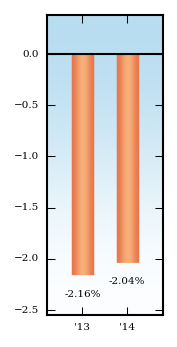
| |||||||||||||||||||||||||||
| The best calendar quarter return during the periods shown above was 6.44% in the 2nd quarter of 2014; the worst was -7.83% in the 2nd quarter of 2013. Updated performance information is available at www.iShares.com or by calling 1-800-iShares (1-800-474-2737) (toll free). | |||||||||||||||||||||||||||
| Average Annual Total Returns (for the periods ended December 31, 2014) | |||||||||||||||||||||||||||
| |||||||||||||||||||||||||||
